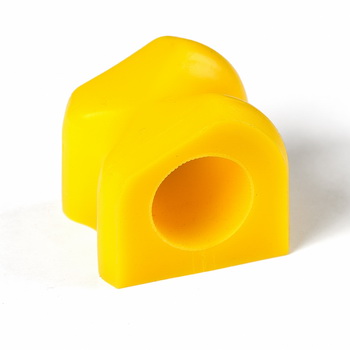Squeaking sway bar bushings can be a frustrating issue for vehicle owners, causing annoying noises and affecting driving comfort. Sway bar bushings play a crucial role in stabilizing the vehicle’s suspension and reducing body roll during cornering. When these components start to squeak, it’s essential to address the problem promptly to prevent further damage and restore driving enjoyment. In this blog post, we’ll explore the common causes of squeaking sway bar bushings and provide practical solutions to resolve the issue.
Common Causes of Squeaking:
- Wear and Tear: Over time, sway bar bushings can degrade due to age, exposure to environmental factors, and repeated stress from vehicle movement. As the rubber or polyurethane material wears down, it can develop cracks and deformities, leading to squeaking noises during suspension articulation.
- Lack of Lubrication: Insufficient lubrication between the sway bar and bushings can cause friction, resulting in squeaking sounds. Dust, dirt, and debris accumulation can also contribute to increased friction and noise.
- Misalignment: Improper installation or misalignment of sway bar bushings can cause uneven pressure distribution and rubbing against the sway bar, leading to squeaking and premature wear.
- Environmental Factors: Extreme temperatures, humidity, and exposure to road salt and chemicals can accelerate bushing deterioration and exacerbate squeaking issues.
Solutions to Resolve Squeaking:
- Lubrication: Applying a suitable lubricant to the sway bar bushings can help reduce friction and eliminate squeaking noises. Silicone-based lubricants or specialized bushing lubricants are recommended for optimal performance and durability.
- Inspection and Replacement: Regular inspection of sway bar bushings is essential to detect signs of wear and damage early. If bushings show significant wear or deformation, they should be replaced promptly to prevent further issues.
- Alignment and Installation: Ensuring proper alignment and installation of sway bar bushings is crucial for optimal performance and longevity. Professional installation by experienced technicians can help avoid misalignment and installation errors that may lead to squeaking.
- Environmental Protection: Protecting sway bar bushings from environmental factors such as extreme temperatures, moisture, and road debris can help prolong their lifespan and prevent premature deterioration. Consider using protective covers or shields in harsh operating conditions.
- Upgrading to Performance Bushings: Upgrading to high-quality polyurethane or aftermarket sway bar bushings can provide improved durability, reduced friction, and enhanced performance. Performance bushings are designed to withstand higher loads and offer superior resilience compared to OEM rubber bushings. Please note that suspension may have several variants. To confirm part compatibility with your vehicle, please provide VIN (Vehicle Identification Number), and we will perform a thorough check to ensure you select the right part. Alternatively, you can search for it by application or OEM on our website.
Dealing with squeaking sway bar bushings requires proactive maintenance and attention to detail. By addressing the underlying causes and implementing appropriate solutions, vehicle owners can eliminate annoying noises, restore suspension performance, and enjoy a quieter and more comfortable driving experience. Whether it’s lubrication, inspection, replacement, or upgrading to performance bushings, taking the necessary steps to address squeaking sway bar bushings will help maintain the integrity and reliability of the vehicle’s suspension system.

